![]()
Islamic Republic of
IRAN
Permanent Mission to the United Nations
Statement by
H. E. Dr. Hassan Rouhani
President of the Islamic Republic of Iran
at the
Sixty-eight Session of the
United Nations General Assembly
New York, 24 September 2013
In the name of God, the Compassionate, the Merciful
Praise be to God, the Lord of the worlds. Blessing and peace be upon our
Prophet Mohammad and his kin and companions.
Mr. President, Mr. Secretary-General,
Excellencies, Ladies and Gentlemen,
At the outset, I would like to offer my most sincere felicitations on your deserved election to the presidency of the General Assembly and seize the moment to express appreciation for the valuable efforts of our distinguished Secretary-General.
Our world today is replete with fear and hope; fear of war and hostile regional and global relations; fear of deadly confrontation of religious, ethnic and national identities; fear of institutionalization of violence and extremism; fear of poverty and destructive discrimination; fear of decay and destruction of life-sustaining resources; fear of disregard for human dignity and rights; and fear of neglect of morality. Alongside these fears, however, there are new hopes; the hope of universal acceptance by the people and the elite all across the globe of “yes to peace and no to war”; and the hope of preference of dialogue over conflict, and moderation over extremism.
The recent elections in Iran represent a clear, living example of the wise choice of hope, rationality and moderation by the great people of Iran. The realization of democracy consistent with religion and the peaceful transfer of executive power manifested that Iran is the anchor of stability in an otherwise ocean of regional instabilities. The firm belief of our people and government in enduring peace, stability, tranquility, peaceful resolution of disputes and reliance on the ballot box as the basis of power, public acceptance and legitimacy, has indeed played a key role in creating such a safe environment.
Mr. President, Ladies and Gentlemen,
The current critical period of transition in international relations is replete with dangers, albeit with unique opportunities. Any miscalculation of one’s position, and of course, of others, will bear historic damages; a mistake by one actor will have negative impact on all others. Vulnerability is now a global and indivisible phenomenon.
At this sensitive juncture in the history global relations, the age of zero-sum games is over, even though a few actors still tend to rely on archaic and deeply ineffective ways and means to preserve their old superiority and domination. Militarism and the recourse to violent and military means to subjugate others are failed examples of the perpetuation of old ways in new circumstances.
Coercive economic and military policies and practices geared to the maintenance and preservation of old superiorities and dominations have been pursued in a conceptual mindset that negates peace, security, human dignity, and exalted human ideals. Ignoring differences between societies and globalizing Western values as universal ones represent another manifestation of this conceptual mindset. Yet another reflection of the same cognitive model is the persistence of Cold War mentality and bi-polar division of the world into “superior us” and “inferior others.” Fanning fear and phobia around the emergence of new actors on the world scene is another.
In such an environment, governmental and non-governmental, religious, ethnic, and even racial violence has increased, and there is no guarantee that the era of quiet among big powers will remain immune from such violent discourses, practices and actions. The catastrophic impact of violent and extremist narratives should not — in fact, must not — be underestimated.
In this context, the strategic violence, which is manifested in the efforts to deprive regional players from their natural domain of action, containment policies, regime change from outside, and the efforts towards redrawing of political borders and frontiers, is extremely dangerous and provocative.
The prevalent international political discourse depicts a civilized center surrounded by un-civilized peripheries. In this picture, the relation between the center of world power and the peripheries is hegemonic. The discourse assigning the North the center stage and relegating the South to the periphery has led to the establishment of a monologue at the level of international relations. The creation of illusory identity distinctions and the current prevalent violent forms of xenophobia are the inevitable outcome of such a discourse. Propagandistic and unfounded faith-phobic, Islamo-phobic, Shia-phobic, and Iran-phobic discourses do indeed represent serious threats against world peace and human security.
This propagandistic discourse has assumed dangerous proportions through portrayal and inculcation of presumed imaginary threats. One such imaginary threat is the so-called “Iranian threat” — which has been employed as an excuse to justify a long catalogue of crimes and catastrophic practices over the past three decades. The arming of the Saddam Hussein regime with chemical weapons and supporting the Taliban and Al-Qaida are just two examples of such catastrophes. Let me say this in all sincerity before this august world assembly, that based on irrefutable evidence, those who harp on the so-called threat of Iran are either a threat against international peace and security themselves or promote such a threat. Iran poses absolutely no threat to the world or the region. In Fact, in ideals as well as in actual practice, my country has been a harbinger ofjust peace and comprehensive security.
Mr. President, Ladies and Gentlemen,
Nowhere in the world has violence been so deadly and destructive as in North Africa and West Asia. Military intervention in Afghanistan, Saddam Hussein’s imposed war against Iran, occupation of Kuwait, military interventions against Iraq, brutal repression of the Palestinian people, assassination of common people and political figures in Iran, and terrorist bombings in countries such as Iraq, Afghanistan and Lebanon are examples of violence in this region in the last three decades.
What has been — and continues to be — practiced against the innocent people of Palestine is nothing less than structural violence. Palestine is under occupation; the basic rights of the Palestinians are tragically violated, and they are deprived of the right of return and access to their homes, birthplace and homeland. Apartheid as a concept can hardly describe the crimes and the institutionalized aggression against the innocent Palestinian people.
The human tragedy in Syria represents a painful example of catastrophic spread of violence and extremism in our region. From the very outset of the crisis and when some regional and international actors helped to militarize the situation through infusion of arms and intelligence into the country and active support of extremist groups, we emphasized that there was no military solution to the Syrian crisis. Pursuit of expansionist strategies and objectives and attempts to change the regional balance through proxies cannot be camouflaged behind humanitarian rhetoric. The common objective of the international community should be a quick end to the killing of the innocent. While condemning any use of chemical weapons, we welcome Syria’s acceptance of the Chemical Weapons Convention, and believe that the access by extremist terrorist groups to such weapons is the greatest danger to the region that must be considered in any disarmament plan. Simultaneously, I should underline that illegitimate and ineffective threat to use or the actual use of force will only lead to further exacerbation of violence and crisis in the region.
Terrorism and the killing of innocent people represent the ultimate inhumanity of extremism and violence. Terrorism is a violent scourge and knows no country or national borders. But, the violence and extreme actions such as the use of drones against innocent people in the name of combating terrorism should also be condemned. Here, I should also say a word about the criminal assassination of Iranian nuclear scientists. For what crimes have they been assassinated? The United Nations and the Security Council should answer the question: have the perpetrators been condemned?
Unjust sanctions, as manifestation of structural violence, are intrinsically inhumane and against peace. And contrary to the claims of those who pursue and impose them, it is not the states and the political elite that are targeted, but rather, it is the common people who are victimized by these sanctions. Let us not forget millions of Iraqis who, as a result of sanctions covered in international legal jargon, suffered and lost their lives, and many more who continue to suffer all through their lives. These sanctions are violent, pure and simple; whether called smart or otherwise, unilateral or multilateral. These sanctions violate inalienable human rights, inter alia, the right to peace, right to development, right to access to health and education, and above all, the right to life. Sanctions, beyond any and all rhetoric, cause belligerence, warmongering and human suffering. It should be borne in mind, however, that the negative impact is not merely limited to the intended victims of sanctions; it also affects the economy and livelihood of other countries and societies, including the countries imposing sanctions.
Mr. President, Excellencies,
Violence and extremism nowadays have gone beyond the physical realm and have unfortunately afflicted and tarnished the mental and spiritual dimensions of life in human societies. Violence and extremism leave no space for understanding and moderation as the necessary foundations of collective life of human beings and the modern society. Intolerance is the predicament of our time. We need to promote and reinforce tolerance in light of the religious teachings and appropriate cultural and political approaches. The human society should be elevated from a state of mere tolerance to that of collective collaboration. We should not just tolerate others. We should rise above mere tolerance and dare to work together.
People all over the world are tired of war, violence and extremism. They hope for a change in the status quo. And this is a unique opportunity — for us all. The Islamic Republic of Iran believes that all challenges can be managed — successfully — through a smart, judicious blend of hope and moderation. Warmongers are bent on extinguishing all hope. But hope for change for the better is an innate, religious, widespread, and universal concept.
Hope is founded on the belief in the universal will of the people across the globe to combat violence and extremism, to cherish change, to oppose imposed structures, to value choice, and to act in accordance with human responsibility. Hope is no doubt one of the greatest gifts bestowed upon human beings by their All-Loving Creator. And moderation is to think and move in a wise, judicious manner, conscious of the time and the space, and to align exalted ideals with choice of effective strategies and policies, while cognizant of objective realities.
The Iranian people, in a judiciously sober choice in the recent elections, voted for the discourse of hope, foresight and prudent moderation — both at home and abroad. In foreign policy, the combination of these elements means that the Islamic Republic ofIran, as a regional power, will act responsibly with regard to regional and international security, and is willing and prepared to cooperate in these fields, bilaterally as well as multilaterally, with other responsible actors. We defend peace based on democracy and the ballot box everywhere, including in Syria, Bahrain, and other countries in the region, and believe that there are no violent solutions to world crises. The bitter and ugly realities of the human society can only be overcome through recourse to and reliance on human wisdom, interaction and moderation. Securing peace and democracy and ensuring the legitimate rights of all countries in the world, including in the Middle East, cannot — and will not — be realized through militarism.
Iran seeks to resolve problems, not to create them. There is no issue or dossier that cannot be resolved through reliance on hope and prudent moderation, mutual respect, and rejection of violence and extremism. Iran’s nuclear dossier is a case in point. As clearly stated by the Leader of the Islamic Revolution, acceptance of the inalienable right of Iran constitutes the best and the easiest way of resolving this issue. This is not political rhetoric. Rather, it is based on a profound recognition of the state of technology in Iran, global political environment, the end of the era of zero-sum games, and the imperative of seeking common objectives and interests towards reaching common understanding and shared security. Put otherwise, Iran and other actors should pursue two common objectives as two mutually inseparable parts of a political solution for the nuclear dossier of Iran.
- Iran’s nuclear program — and for that matter, that of all other countries — must pursue exclusively peaceful purposes. I declare here, openly and unambiguously, that, notwithstanding the positions of others, this has been, and will always be, the objective of the Islamic Republic of Iran. Nuclear weapon and other weapons of mass destruction have no place in Iran’s security and defense doctrine, and contradict our fundamental religious and ethical convictions. Our national interests make it imperative that we remove any and all reasonable concerns about Iran’s peaceful nuclear program.
- The second objective, that is, acceptance of and respect for the implementation of the right to emichment inside Iran and enjoyment of other related nuclear rights, provides the only path towards achieving the first objective. Nuclear knowledge in Iran has been domesticated now and the nuclear technology, inclusive of enrichment, has already reached industrial scale. It is, therefore, an illusion, and extremely umealistic, to presume that the peaceful nature of the nuclear program of Iran could be ensured through impeding the program via illegitimate pressures.
In this context, the Islamic Republic of Iran, insisting on the implementation of its rights and the imperative of international respect and cooperation in this exercise, is prepared to engage immediately in time-bound and result-oriented talks to build mutual confidence and removal of mutual uncertainties with full transparency.
Iran seeks constructive engagement with other countries based on mutual respect and common interest, and within the same framework does not seek to increase tensions with the United States. I listened carefully to the statement made by President Obama today at the General Assembly. Commensurate with the political will of the leadership in the United States and hoping that they will refrain from following the short-sighted interest of warmongering pressure groups, we can arrive at a framework to manage our differences. To this end, equal footing, mutual respect, and the recognized principles of international law should govern the interactions. Of course, we expect to hear a consistent voice from Washington.
Mr. President, Ladies and Gentlemen,
In recent years, a dominant voice has been repeatedly heard: “The military option is on the table.” Against the backdrop of this illegal and ineffective contention, let me say loud and clear that “peace is within reach.” So, in the name of the Islamic Republic of Iran I propose, as a starting step, the consideration by the United Nations of the project: “the World Against Violence and Extremism.” (WAVE) Let us all join this “WAVE.” I invite all states, international organizations and civil institutions to undertake a new effort to guide the world in this direction. We should start thinking about “Coalition for Enduing Peace” all across the globe instead of the ineffective “Coalitions for War” in various parts of the world.
Today, the Islamic Republic of Iran invites you and the entire world community to take a step forward; an invitation to join the WAVE: World Against Violence and Extremism. We should accept and be able to open a new horizon in which peace will prevail over war, tolerance over violence, progress over bloodletting, justice over discrimination, prosperity over poverty, and freedom over despotism. As beautifully said by Ferdowsi, the renowned Iranian epic poet:
Be relentless in striving for the cause of Good
Bring the spring, you must, Banish the winter, you should.
Notwithstanding all difficulties and challenges, I am deeply optimistic about the future. I have no doubt that the future will be bright with the entire world solidly rejecting violence and extremism. Prudent moderation will ensure a bright future for the world. My hope, aside from personal and national experience, emanates from the belief shared by all divine religions that a good and bright future awaits the world. As stated in the Holy Qur’an:
And We proclaimed in the Psalms, after We had proclaimed in the Torah, that My virtuous servants will inherit the earth. (21:105)
Thank you Mr. President



 RSS
RSS

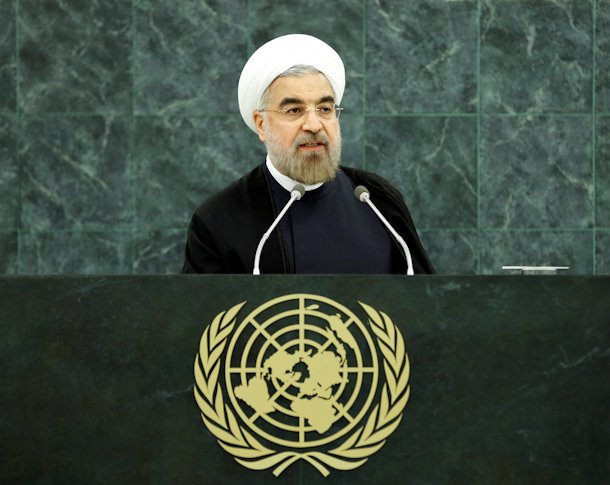

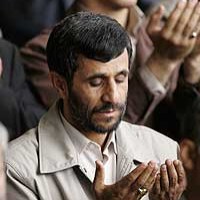
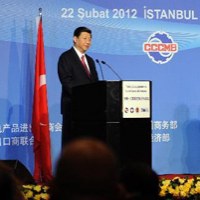
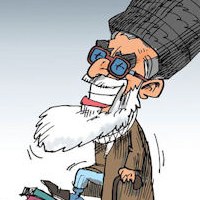
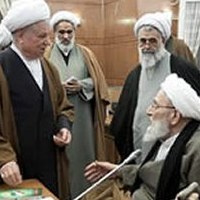




Latest Comments
Hello Mike, Thank you for your positive feedback to the article. I felt there wasn’t too much critical analysis of ...
Thanks for this considered and well constructed article. A follow up article on the manner in which the editorial contro...
THE CLUELESSNESS OF CLAIMING THAT OBAMA'S MIDDLE EAST POLICIES WERE A FAILURE CANNOT BE FURTHER FROM THE TRUTH, WHAT THE...
As long as Obama is the president of the usa do not trust the us government......
Thank you for an good read....